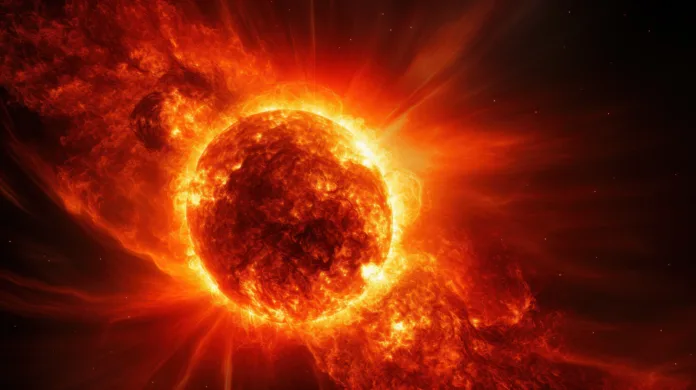Experts warn of increasing risk as second solar storm expected to hit soon
A solar storm hit Earth on Monday, causing temporary radio blackouts over the Pacific Ocean, with experts warning that the risk of such disruptions is on the rise. The incident occurred around 4:20 pm ET on January 22, impacting the waters off the western US and South America for just a few seconds. However, concerns mount as another solar storm is predicted to hit today, January 23.
Data from the US National Oceanic and Atmospheric Administration (NOAA’s) Space Weather Prediction Center (SWPC) indicated a blackout risk of approximately 60% for the power grid due to the impending storm. Similar disruptions are expected in radios and aviation communications.
Space weather physicist Tamitha Skov highlighted the increasing risk of radio blackouts, stating, “We have already had two small M-class flares, resulting in short-lived R1-level radio blackouts [yesterday], but they may soon become longer and larger.”
The grading for the upcoming storm is G1, the least severe on the scale, indicating potential weak power grid fluctuations and minor impacts on satellite operations. NOAA emphasized that the storms are not expected to significantly affect critical infrastructure.
Skov reassured, “We can all rest easy, as these storms will not be that powerful to affect critical infrastructure.” She added that the series of solar storms, set to continue until January 25, may provide an opportunity for sky gazers to witness the northern lights in several US states, including northern Michigan and Maine.
“Solar storms are what cause the gorgeous aurora we see on Earth’s nightside. For the aurora lovers in your community, this week is a real treat,” Skov explained.
While the solar storms bring awe-inspiring natural light displays, experts caution about the potential impact on communication systems and emphasize the need for ongoing monitoring and preparedness for such space weather events.
